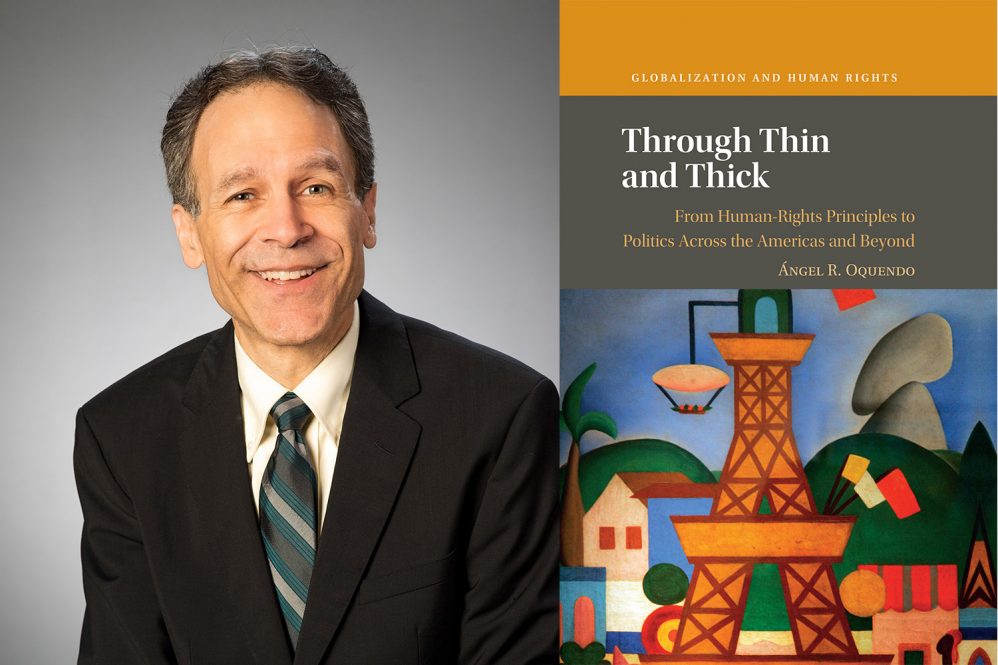A new book by UConn Law Professor Ángel Oquendo combines a deep conceptual analysis of human rights with a focus on specific cases and controversies in Latin America.
“Through Thin and Thick: From Human-Rights Principles to Politics across the Americas and Beyond” is the latest in the Globalization and Human Rights series published by Cambridge University Press. The text explores a wide range of concrete situations and uses them to demonstrate ways to conceptualize human rights. The topics include regional governments’ attacks on the Inter-American Human-Rights System, the global refugee crisis, trends in reproductive rights, and developments involving citizenship, due process, self-determination and climate change.
While investigating specific issues, Oquendo places the particular facts in cultural and historical context and interweaves them with analysis of the human rights in question. He considers how courts and governments can support human rights, how governments of different political ideologies can work together on them, and what that means in terms of social justice.
“The book addresses anybody interested in human rights — whether a professor or student, analyst or a concerned person — from a legal, philosophical, politically scientific, sociological, historical, journalistic, anthropological, or humanitarian perspective,” Oquendo said. “The reader will find a path provided to think and talk about these guaranties clearly.”
Professor Daniel Markovits of Yale Law School called it “a hermeneutic upheaval of a book,” and Professor Carrie Menkel-Meadow of the University of California Irvine School of Law termed it “a must-read for any student of human rights and justice in Latin America and beyond.”
Associate Dean Richard A. Wilson of UConn School of Law commented, “Professor Oquendo provides a much-needed reconceptualization of human rights which reconfigures state sovereignty and state responsibilities in ways that render human rights more inclusive and politically charged, and also more capable of responding to the challenges of ethnonationalism, anti-immigrant nativism, and environmental catastrophe.”
Oquendo is the George J. and Helen M. England Professor of Law at the UConn School of Law and an international authority on comparative law and international litigation. His areas of expertise include commercial law, collective suits, civil rights, and European and American Law. His textbook “Latin American Law” is currently in its third edition with Foundation Press. A graduate of Harvard University and Yale Law School, he has held both the Fulbright Distinguished Chair in Legal Theory Studies and the Fulbright-Hays Faculty Fellowship.



